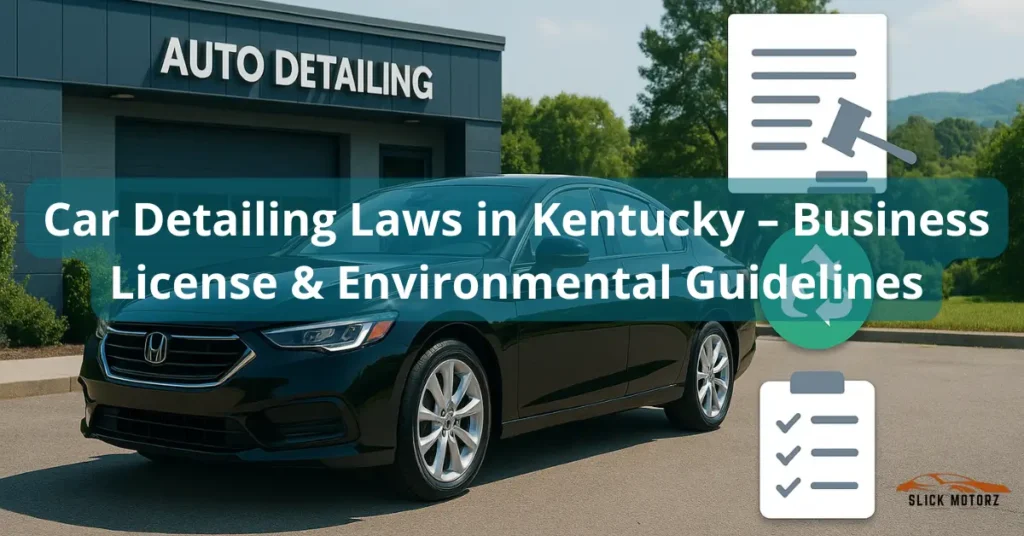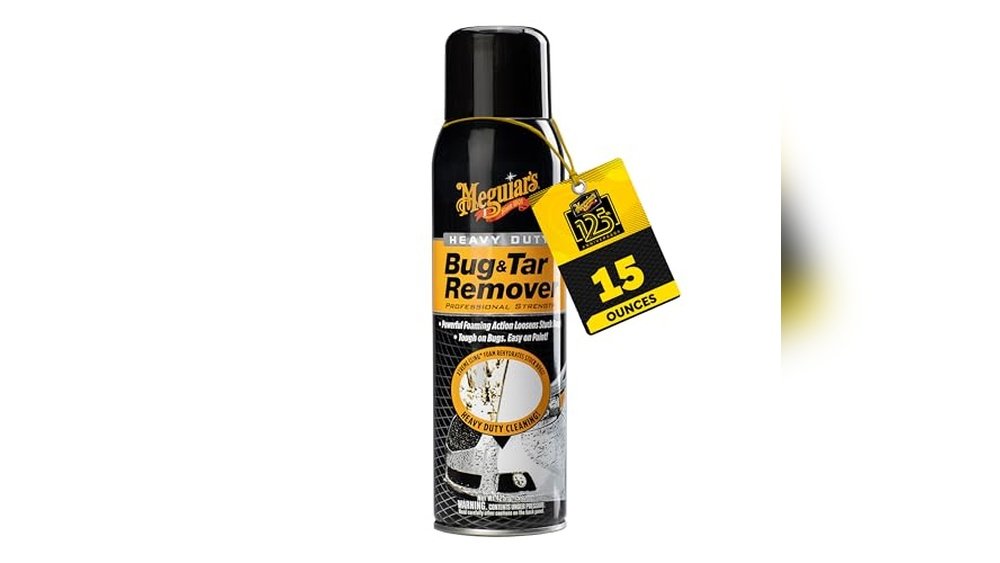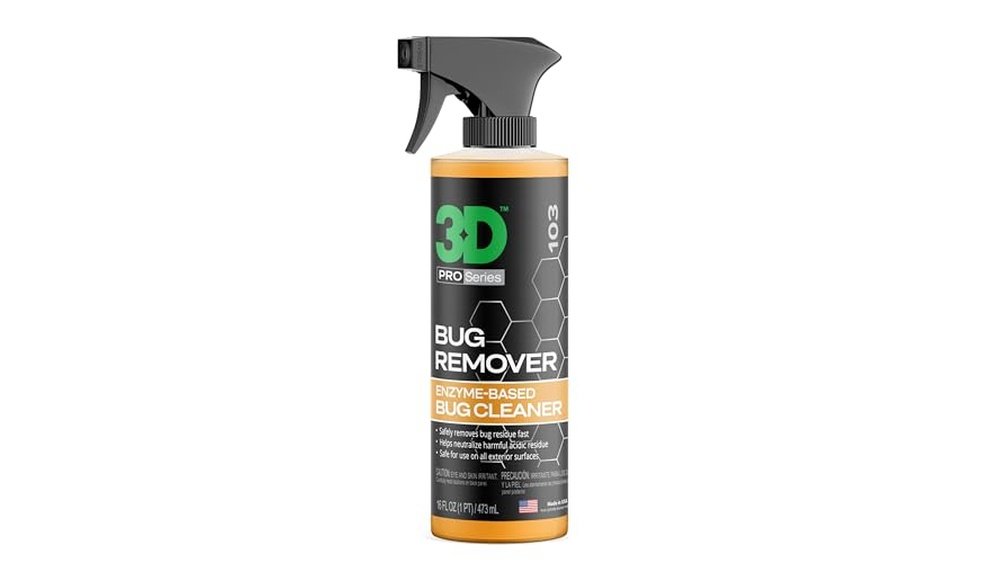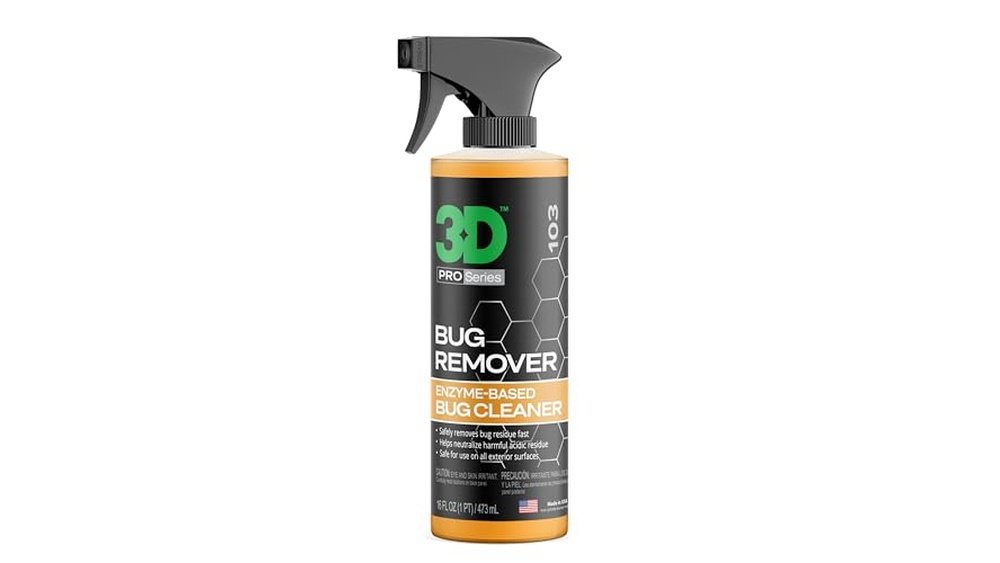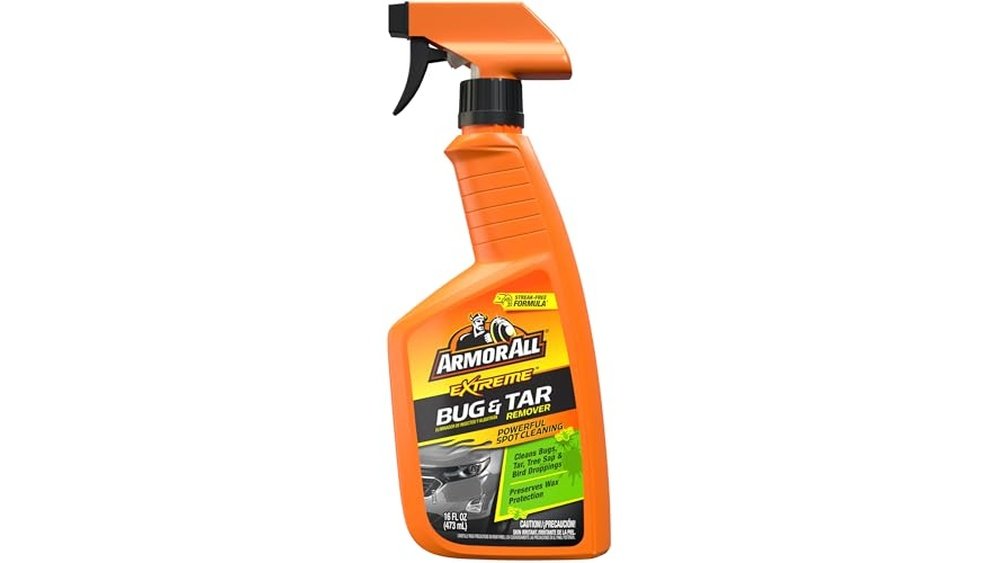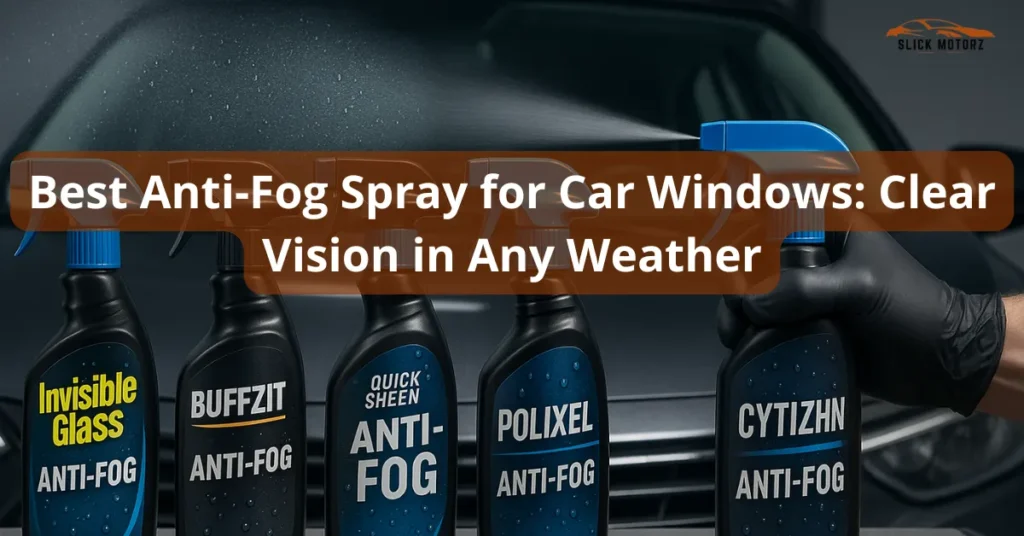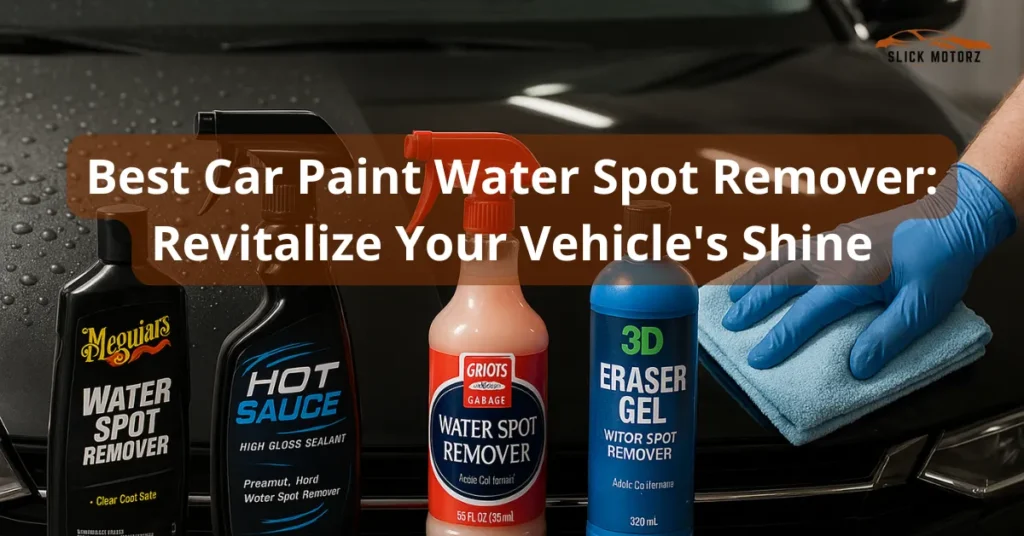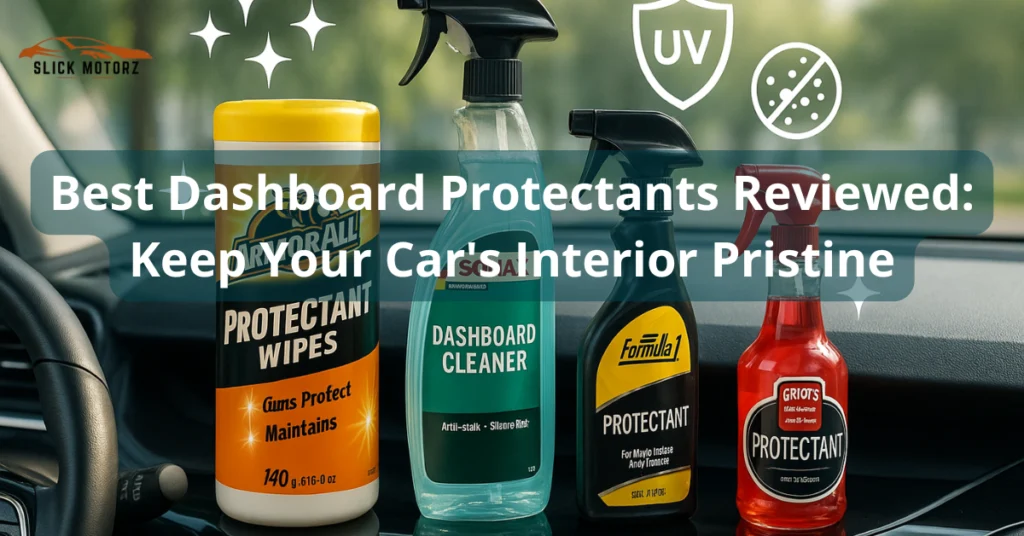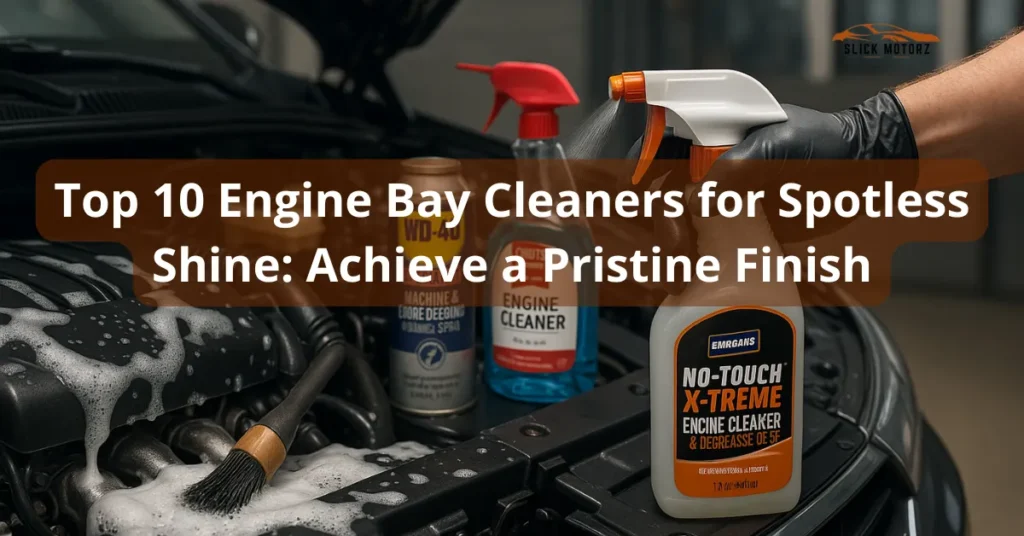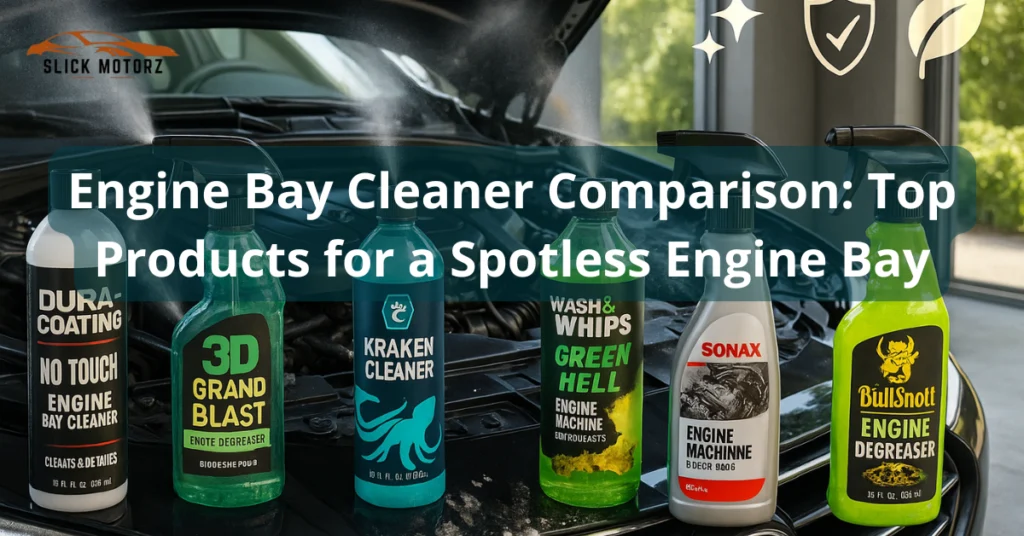Are you thinking about starting a car detailing business, or simply want to keep your vehicle in top shape while following the rules? Understanding the car detailing laws in Kentucky is essential for you.
Whether you plan to run your business from home or a commercial location, knowing what permits you need, where you can wash vehicles, and how state regulations affect your work can save you from costly fines and legal trouble. You’ll discover the key legal points that impact car detailing in Kentucky—so you can protect your investment, stay compliant, and focus on delivering great service.
Keep reading to make sure you’re fully prepared before you get your hands dirty!
Kentucky Business Licensing
Starting a car detailing business in Kentucky requires understanding state and local licensing rules. Licensing ensures your business operates legally and meets safety standards. It also helps build trust with customers and avoid fines.
Each city or county may have different requirements for car detailing businesses. Knowing these rules early saves time and money. Proper licensing can open doors to more clients and partnerships.
State And Local Requirements
Kentucky does not require a special state license for car detailing. Still, general business licenses are necessary. Local governments may ask for permits or zoning approval. Checking with your city or county office is essential.
Some areas restrict home-based businesses for car detailing. You might need a variance or special permission. Sales tax registration is also required to collect taxes on services. Stay updated on local rules to keep your business compliant.
Registering Your Detailing Business
Register your business with the Kentucky Secretary of State. This step makes your business official and legal. You will need a business name and address. Registration also allows you to open a business bank account.
Obtain an Employer Identification Number (EIN) from the IRS. The EIN is needed for tax reporting and hiring employees. Register for state taxes through the Kentucky Department of Revenue. This includes sales tax and income tax withholding.
Choosing A Business Structure
Pick a business structure that fits your needs. Common types include sole proprietorship, LLC, and partnership. A sole proprietorship is the simplest but offers less legal protection.
An LLC separates your personal and business assets. It protects your personal property from business debts. Partnerships share ownership and responsibility among two or more people. Each has pros and cons for taxes and liability.
Consult a legal or tax professional before choosing a structure. The right choice helps your business grow safely and efficiently.
Home-based Detailing Rules
Running a car detailing business from home in Kentucky involves following specific rules. These rules help maintain safety and order in residential areas. Knowing the home-based detailing rules can keep your business legal and respected.
Zoning Laws And Restrictions
Kentucky enforces zoning laws to separate business and residential activities. Many neighborhoods restrict commercial work to protect residents’ peace. Check local zoning maps to see if detailing is allowed at your home. Some areas forbid loud noises, chemical use, or customer traffic. Ignoring zoning laws can lead to fines or business closure.
Applying For Exceptions
If your home is not zoned for detailing, you may request an exception. Contact your city or county zoning office to learn about the process. You may need to submit an application explaining your business plan. Attend public hearings if required, showing how you will limit noise and pollution. Approval depends on community support and safety compliance.
Impact On Neighborhoods
Car detailing at home can affect neighbors. Noise, water runoff, and chemical smells may cause complaints. Keeping work hours reasonable helps avoid conflicts. Use eco-friendly products and proper waste disposal to reduce harm. Respecting neighbors’ concerns builds good relations and a better reputation.
Certification And Training
Certification and training play a key role in the car detailing industry in Kentucky. They help detailers improve their skills and gain credibility. While certification is not required by law, it offers many advantages for professionals and customers alike.
Proper training ensures detailers know the best methods and safety practices. It also helps them stay updated with new products and technologies. Kentucky detailers who pursue certification often stand out in the competitive market.
Certification Benefits
Certification shows that a detailer has met industry standards. It builds trust with clients who want quality service. Certified detailers may charge higher rates due to proven expertise. It can also open doors to better job opportunities and partnerships.
Recommended Training Programs
Several programs offer training for car detailers in Kentucky. National organizations like the International Detailing Association provide courses. Local community colleges sometimes offer auto detailing classes. Online programs also give flexible learning options. Choosing a reputable program ensures comprehensive skill development.
Skill Validation For Customers
Customers often look for certified detailers to ensure quality. Certification acts as proof of skill and professionalism. It gives clients confidence that their vehicle is in good hands. This validation can lead to repeat business and positive reviews. Detailers who show certifications often gain more trust from customers.

Credit: m.yelp.com
Environmental Regulations
Environmental regulations shape how car detailing businesses operate in Kentucky. These rules protect water quality and limit pollution risks. Detailers must follow strict laws on water use and chemical disposal. Each county may add its own rules to keep the environment safe. Understanding these regulations helps avoid fines and supports eco-friendly practices.
Water Usage Restrictions
Kentucky limits water use during car detailing to prevent waste. Many counties ban washing cars on streets or driveways that drain into storm sewers. Using water-efficient equipment reduces consumption and meets local rules. Some areas require recycling or capturing wash water. Staying within these limits saves water and avoids penalties.
Chemical Disposal Guidelines
Detailing chemicals can harm soil and water if not handled properly. Kentucky law requires the safe disposal of soaps, waxes, and solvents. Businesses must not pour chemicals down drains or onto the ground. Using approved containers and licensed disposal services is mandatory. Proper disposal protects the environment and ensures legal compliance.
Local County Rules
Counties like Boone, Campbell, and Kenton have specific detailing regulations. These rules may include permits, water use limits, and waste handling. Some counties inspect detailing sites to ensure compliance. Business owners should check local government websites for details. Following local laws keeps your business legal and environmentally responsible.
Sales Tax And Financial Compliance
Understanding sales tax and financial compliance is vital for any car detailing business in Kentucky. Proper knowledge helps you avoid legal troubles and keeps your business running smoothly. Sales tax laws affect how you charge customers and report income. Financial compliance ensures your records are accurate and transparent.
Tax Exemptions For Services
In Kentucky, some car detailing services may be exempt from sales tax. For example, basic washing and waxing often do not require tax collection. However, services involving parts or repairs usually have taxable charges. Knowing which services are exempt helps you price your offerings correctly. Always check the latest state guidelines to confirm exemptions.
Collecting And Reporting Sales Tax
Detailing businesses must collect sales tax on taxable services and products. This tax is added to the customer’s bill and then paid to the state. You need a sales tax permit from the Kentucky Department of Revenue. Filing regular sales tax returns is mandatory. Missing deadlines or underreporting can lead to penalties and fines.
Accounting Best Practices
Keeping clear and organized financial records is crucial. Track all sales, expenses, and tax collections carefully. Use accounting software to simplify this process and reduce errors. Separate taxable and non-taxable sales for easy reporting. Regularly review your books to ensure compliance with Kentucky laws. Good accounting builds trust with customers and authorities alike.
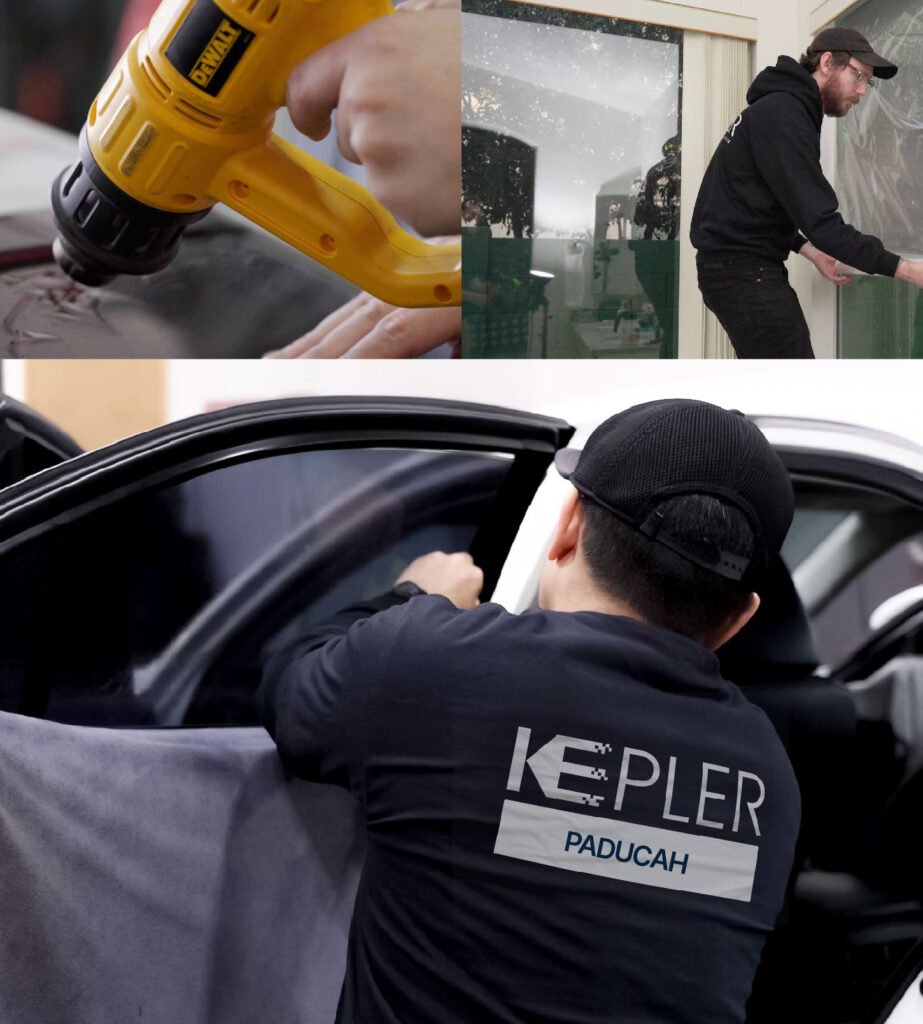
Credit: kepler-dealer.com
Operational Limits And Responsibilities
Running a car detailing business in Kentucky involves clear operational limits and responsibilities. Understanding these rules helps protect your business and your clients. It also ensures smooth daily operations and legal compliance.
Kentucky sets guidelines on how many vehicles you can detail daily, your liability for any vehicle damage, and the necessary insurance coverage. These rules keep your business safe and trustworthy.
Daily Vehicle Capacity
Detailing shops in Kentucky must manage their daily vehicle capacity carefully. The number depends on your workspace size and equipment. Overloading your schedule can reduce quality and increase mistakes. Keeping a realistic vehicle limit helps maintain high service standards.
Liability For Vehicle Damage
Detailers are responsible for any damage during the service. Kentucky law requires clear agreements about liability with customers. Documenting the vehicle’s condition before starting work protects both parties. Promptly addressing any damage builds trust and avoids disputes.
Insurance Considerations
Insurance is essential for car detailing businesses in Kentucky. It covers accidents, theft, and damage claims. General liability and garage liability insurance are common choices. Proper insurance protects your business from financial loss and legal issues.
Legal Documentation
Legal documentation plays a key role in the car detailing business in Kentucky. Proper papers protect your business and build trust with customers. Clear documents prevent misunderstandings and legal troubles. Every detailer must understand what documents to prepare and keep.
Contracts And Agreements
Contracts clarify the services you provide and the costs involved. Written agreements help set expectations and reduce disputes. Detailers should include service descriptions, payment terms, and cancellation policies. Both parties should sign contracts before work begins. Clear contracts protect your business and customers alike.
Avoiding Legal Issues Locally
Local laws may affect where and how you operate your detailing business. Some counties or cities require permits or have zoning rules. Check with local offices to follow all regulations. Keeping records of permits and inspections avoids fines. Respecting local laws keeps your business running smoothly.
Compliance With State Laws
Kentucky has specific rules for small businesses like car detailing. Register your business with the state and get any required licenses. Follow tax regulations and keep accurate sales records. Some services, like vehicle refinishing, may need special permits. Staying compliant with state laws protects your business from penalties.
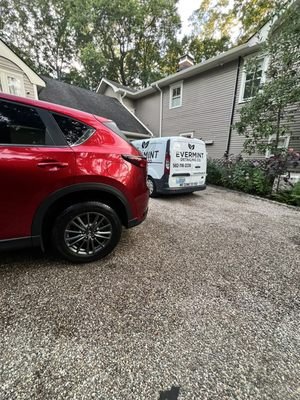
Credit: m.yelp.com
Frequently Asked Questions
Can I Run A Detailing Business From Home?
Yes, you can run a detailing business from home. Check local zoning laws and obtain necessary permits first. Register your business with state authorities to operate legally.
Do I Need To Be Certified To Detail Cars?
Certification is not mandatory to detail cars, but it enhances credibility and proves your skills to clients and employers.
How Many Cars Can You Detail A Day?
A professional detailer typically details 3 to 5 cars daily, depending on service complexity and time. Efficient scheduling boosts productivity.
Do You Need An LLC for A Car Detailing Business?
You do not need an LLC to start a car detailing business. Choose a business structure like a sole proprietorship or LLC and register it.
Conclusion
Understanding car detailing laws in Kentucky helps you run a safe business. Follow local rules on licenses, permits, and zoning carefully. Check state requirements to avoid fines or closures. Keep your business legal by registering properly and maintaining good records.
Stay updated on changes in laws affecting your work. A well-informed detailer builds trust with customers and authorities. Respecting these rules ensures your business grows smoothly and responsibly. Keep your focus on quality service while complying with Kentucky’s laws. Success comes from combining skill with legal awareness.

